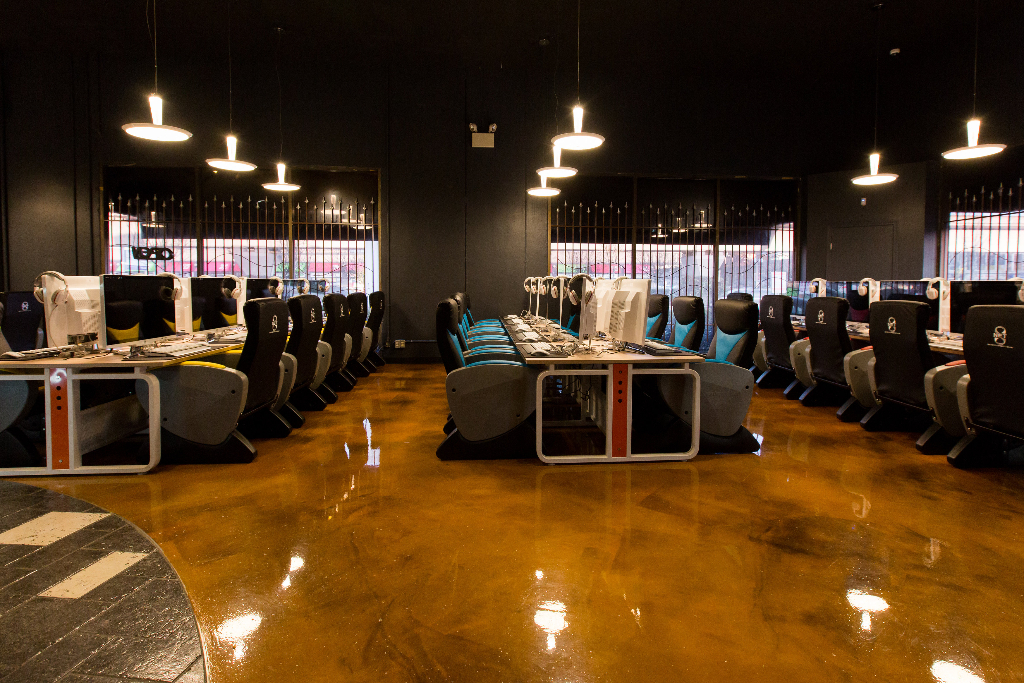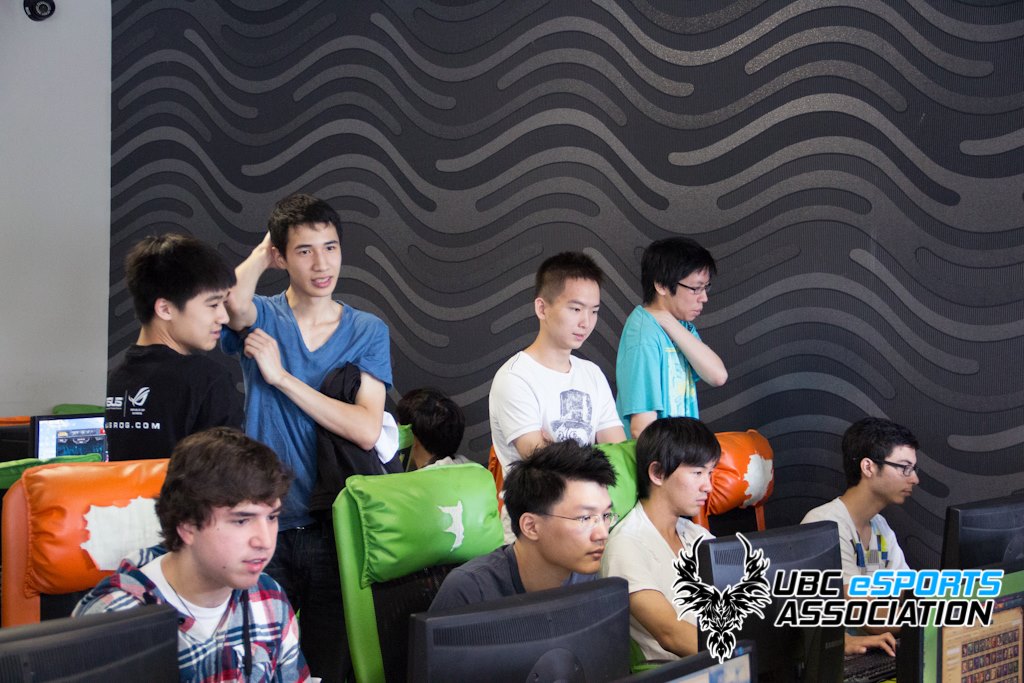It’s a little past 1:00 AM. I’ve just stumbled out of the gated doors of Net8 Esports Arena, a PC bang in Richmond, British Columbia after a 3-hour Overwatch/League of Legends session with a group of longtime friends. My eyes are drooping, having stayed up past my old-man bedtime which has aligned with the sunset of late. Still, I’ve enjoyed myself thoroughly, despite the 14 dollars I’ve expended playing video games I could’ve loaded up on the very laptop I’m writing this from. And if I tell my colleagues from Ottawa what I’ve been up to, chances are they’d all reply with the same question: “Why the hell would you go out just to play video games?”
To be fair, it isn’t a bad question. Looking from outside of the experience, it appears to be a complete waste of resources. After all, why would I go spend money to rent someone else’s computer in a ramen-noodle-infested lair instead of gaming from the comfort of my own home – with my own peripherals, drawer full of terrible gaming snacks, and comfort to boot? Honestly, I sort of agree. But let’s try to answer this question with a re-imagination of the existing paradigm, because PC bangs can, and should, be much more than just a collection of computers.
For myself—and my friends—it’s a social experience.
Sometimes we go clubbing. Other times, we’ll go to the gym, enjoy the nature of British Columbia, or succumb to glutton at a late night Pho joint.
For us, it’s the same thing.
As much as VoIP applications like Skype and Discord connect gamers through voice chat, there’s evidently something different about being in close physical proximity with one another. It’s a distinct shift from a gaming experience to the aforementioned social experience. My enjoyment in that moment comes from the people I’m around rather than the salty tears of my top lane opponent.
To the credit of PC bangs, the prototypical layout is already conducive to socialization. Most of the time, you aren’t playing a game with more than five or six people at the same time, and if you are, there’s a solid chance that any number of people over that amount aren’t on the same team as you. A typical PC bang layout currently will place several computers adjacent to each other, while a matching number of PCs will be facing this setup on the other side. That said, I believe that there is more that can and should be done to create a social experience at PC bangs, especially in North America where the popularity of these LAN cafes pales in comparison to what you see in other countries with thriving esports scenes, most notably South Korea.

At a former job of mine, an initiative was rolled out across all departments. It was called Workplace 2.0, and emphasized a departure from traditional office cubicle setups in favor of open concept offices meant to encourage collaboration. PC bangs can steal a page out of this book by implementing collaborative spaces.
Most PC bang attendees are looking for a fast computer and comfortable seats, but that doesn’t mean that they can’t want more. I can’t count the number of times I’ve awkwardly leaned over my computer to talk with a bunch of my friends halfway across the room. Why not add in some roundtable setups around the cafe, especially for dedicated eating? No more Doritos dust between the keys! Gamers could sit down and talk strats or shoot back some Redbull bombs while resting their overworked eyes.
Unlike most of my friends though, my connection with the “PC bang” involves much more than just another hangout.
The PC Bang Platform
Most of my friends don’t know this, but before my stint with CompLexity Gaming, I was contacted by a Korean League of Legends organization. Sort of. Have any of you ever heard of Team Green Forest? The org has had a brief stint in the LCS, but they were a staple of professional League of Legends long before we had the official league. In my senior year of high school, I played under their banner, sporting the sweet “TGF” tag before my in-game name, Jezie.
I didn’t know at the time, but Green Forest was actually a PC bang based out of California. At the end of the day, I never got to visit. I started my freshman year of university and failed the qualifier with TGF after Cloud9 Tempest banned my Lee Sin, and that was the end of that.
Regardless of the success of that venture, it serves as a reminder that PC bangs are businesses, and any business can be used as a platform for something else. In this case, the owner happened to dream of pursuing LCS ownership. And similar forays would make sense for existing PC bangs—the entire world of esports is more lucrative than ever, with thriving professional scenes, merchandising, content creation and more. Leveraging an existing platform, especially a contextually topical one, makes almost too much sense.
Enter The Arena
But if I rewind even further in my memory, my first competitive League of Legends experience was at DNA Internet Cafe. I’m pretty sure a young five-foot-zero Johnny “Altec” Ru who could barely see his monitor at the time was part of the winning team at the tournament. Some of the best friends I’ve made to this day, I met at that very tournament at DNA.

In the time that’s passed, I’ve played at a few more locals, grabbed a couple thousand more dollars of money and peripherals, and, most importantly, experienced the thrill of live gaming. We should remember that not every esports tournament happens online or on the main stage of Madison Square Garden. Especially in the earlier 2010’s, local esports tournaments held at PC bangs were commonplace – and by my anecdotes, served to create the grassroots foundation for esports.
The most recent announcement from Microsoft marked the first time that a tech giant will be hosting competitive League of Legends events at a storefront. Turning their existing retail space into a multipurpose space not only serves to promote products on display, but also creates a esports culture within the physical space – the opportunity for any customer to experience esports.
The best part? It’s basically a free venture.
You May Like
These stores already have tons of people messing around on the devices for show all day. If this sounds funky, just think about the last time you walked into an Apple store. The prize pools come from a partnership with Riot: Triumphant Ryze skins, Riot Points, summoner icons, and some bonus experience/influence points just for playing at the venue. Additionally, it allows suppliers (or in the case of an internet cafe, sponsors) to showcase their products. Gamers playing at the Microsoft tournaments will be well-equipped with ASUS RoG and HyperX hardware and peripherals.
It’s a little sad to see fewer local PC bangs and tournaments around my hometown these days. Local business owners mostly sing the same tune when I ask them about events.
“It’s a pain in the ass.”
“We don’t make enough money off of it.”
“It’s just not worth it.”
I can sympathize, but they’re not looking past the immediate future. Once you establish the infrastructure and procedure for running a local tournament, the next time gets easier. The promotion opportunity simply can’t be ignored, and rather than offering cash prizes, PC bangs need to be actively leveraging sponsorship and partnerships to run these events at cost or even for a profit. If it’s still that much of a pain, just get the local university esports club to do the dirty work. They’ll be more than willing, and you can likely work out a mutually beneficial arrangement.
North American PC Bangs
In my mind, the North American PC bang is really more of a sandbox than an arena. Unlike their Asian counterparts, Western internet cafes have yet to create an identity that is anything in particular – it’s still just that ‘collection of computers.’ I’ve already seen other uses for the space: as a refuge from helicopter parents, or perhaps as a cheap place to spend the night gaming instead of going to a hotel for a $200 nap. Maybe the future of PC bangs is professional rather than casual, acting as a cooperative workspace for esports enthusiasts. With organizations like Team Liquid opting for greater work-life balance, this might become the ideal option for newer esports orgs which don’t benefit from the “paid by Steve” attribute.
It’s a common space of this generation – a community center for casuals and enthusiasts, an arena for competitors, and an office for entrepreneurs. PC bangs aren’t going to be just computer cafes in the future.
We’re just waiting for someone to reinvent the metagame.
















